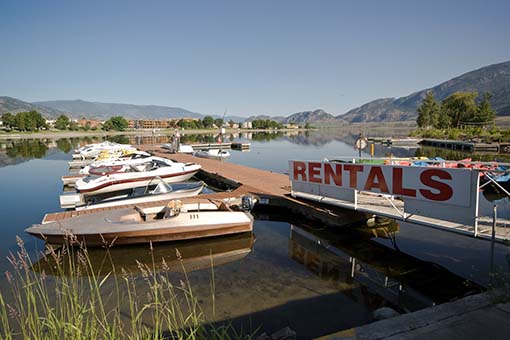Boating is an enjoyable recreational activity, but did you know that it can also be a great source of income?
Renting out your boat can be lucrative, but there are some essential things to consider before taking the plunge. In this article, we'll discuss the pros and cons of renting out your boat and how to set up a rental agreement.
The Pros of Renting Out Your Boat
1. Additional Income
Making money by renting out your boat is an attractive proposition for many. Not only can it help offset some of the expenses associated with boat ownership, but it could also generate significant income. The amount of income will depend on the type of vessel and its location.
It's important to research rental laws and regulations in your local area and consider other factors, such as damage insurance and liability waivers.
2. Access to a Broader Market
Renting out your boat gives you access to a larger pool of potential customers.
Your vessel may be situated in a prime boating destination, so allowing others to rent it can enable them to enjoy boating without buying their own boat.
3. Tax Benefits
If you rent out your boat a few days each year for personal use, you might benefit from certain tax advantages. The IRS permits boat owners to deduct costs related to their rental income, such as maintenance, repairs, and insurance coverage.
4. Improved Boat Maintenance
When renting your boat, you must stay on top of maintenance and repairs.
Regular upkeep must be conducted to ensure that it's in good condition for renters, which can help keep your vessel in optimal condition.
5. Peace of Mind
Renting out your boat can provide peace of mind, knowing that it is being used and enjoyed by others.
You don't have to worry about maintenance, repairs, and marine insurance costs, as the renter handles these. This allows you to enjoy the benefits of owning a boat without taking on all the burdens.
The Cons of Renting Out Your Boat
1. Risk of Damage
When renting out your boat, knowing the risk of potential damage is crucial.
Accidents can happen, so you need to ensure that you have insurance before committing to a rental agreement.
If there is damage, it could be costly to repair. Therefore, you should take extra precautions, such as having an agreement with the renter detailing all expectations.
2. Liability Issues
When renting out your boat, it is essential to consider taking out an adequate liability insurance policy. This policy will protect you if someone is injured while using the boat, as you could be held responsible for any damage or injury.
Thoroughly research what kind of coverage and policy would be best for you before signing a rental agreement.
3. Wear and Tear
Renting out your boat can cause excessive wear and tear. Someone else operating it may not take the same care as you. This can result in damage or premature degradation.
4. Time and Effort
Renting out your boat can be a labor-intensive endeavor. You must actively advertise it, assess possible renters, and confirm that the vessel is ready for use. This takes time and may necessitate more work on your part.
5. Security Concerns
When you rent out your boat, security becomes a significant concern. You must ensure it is guarded against theft and vandalism, which could involve extra locks or an alarm system.
How to Rent Out Your Boat
1. Determine the Market
Determining the market demand is the first step in understanding how to rent your boat. Do some research to ensure that the type of boat you own is in high demand and can attract potential renters.
You will also need to consider the rental price range, so familiarize yourself with what other vessels like yours charge.
2. Set Prices
Once you determine the rental rate, you'll need to set a competitive price that still allows you to make a profit. When setting your prices, factor in additional costs, such as taxes or insurance premiums.
3. Prepare Your Boat for Rental
Before renting out your boat, it's essential to prepare it for rental. This includes ensuring it's in good condition, with all necessary safety equipment and gear. Check out our guide on cleaning your boat.
Read Next: Boat Cleaning Basics
Additionally, providing renters with a checklist that outlines any special instructions or procedures for using the boat can help ensure a smooth rental experience.
4. Choose a Rental Platform
After assessing the market, you'll need to determine which rental platform is the best fit.
Boat rental companies like Boatsetter and GetMyBoat offer online listings, although you can also choose to rent it out privately. Still, that requires extra effort.
5. Set Rental Terms and Rates
You must set up rental terms and rates when renting out your boat. This agreement includes the amount for the security deposit, the minimum rental period, and the hourly or daily rental rate. Offering discounts for multiple-day rentals or off-season rentals can also be beneficial.
6. Screen Renters
Before renting out your boat, it's important to screen potential renters. This includes checking their boating experience, ensuring they have a valid boating license or certification, and verifying references.
It's important that any potential renters have, at a minimum, take a boating safety course. Doing so can help ensure that your boat is in good hands while it's being rented out.
Conclusion
Renting out your boat can be a great way to earn extra income and share your love of boating with others. However, it's essential to carefully consider the pros and cons before deciding to rent out your boat.


